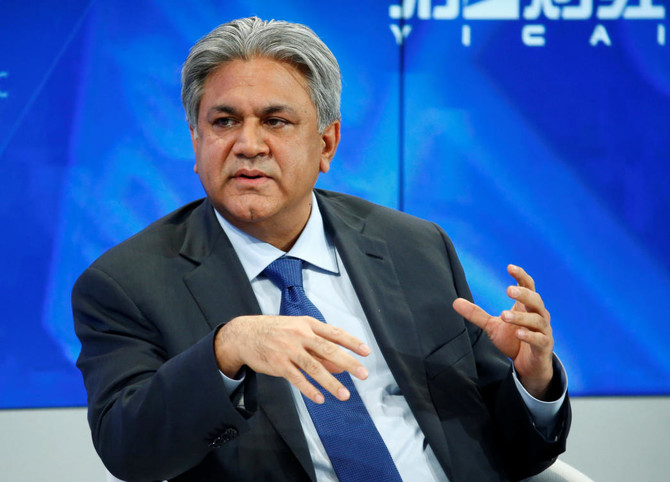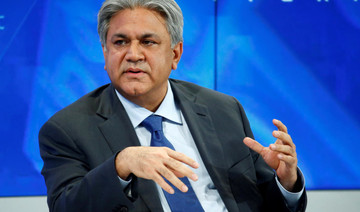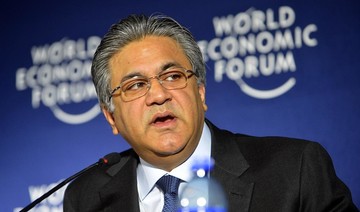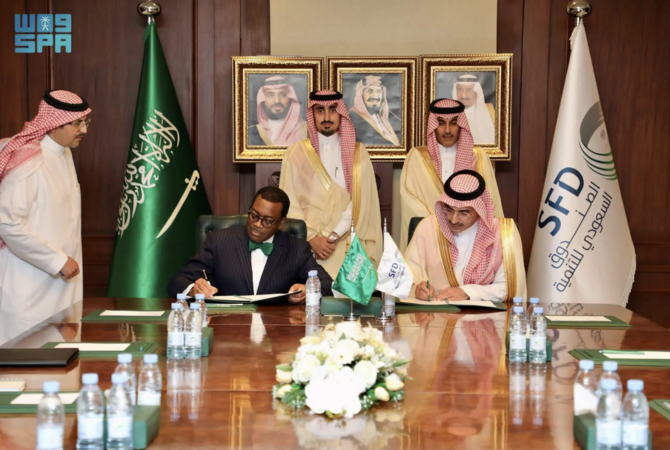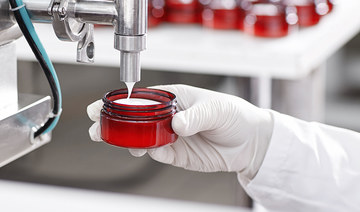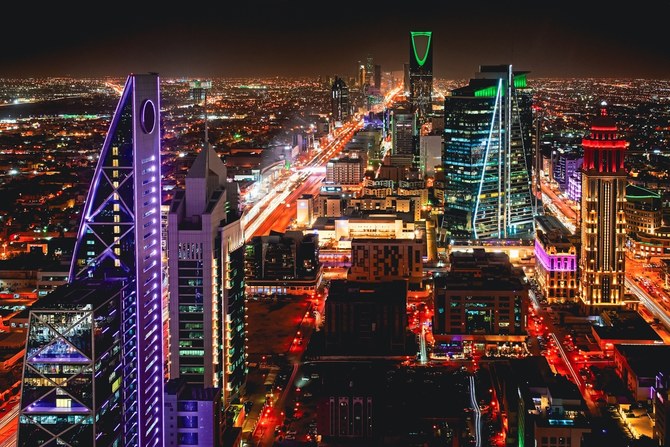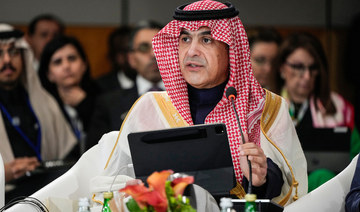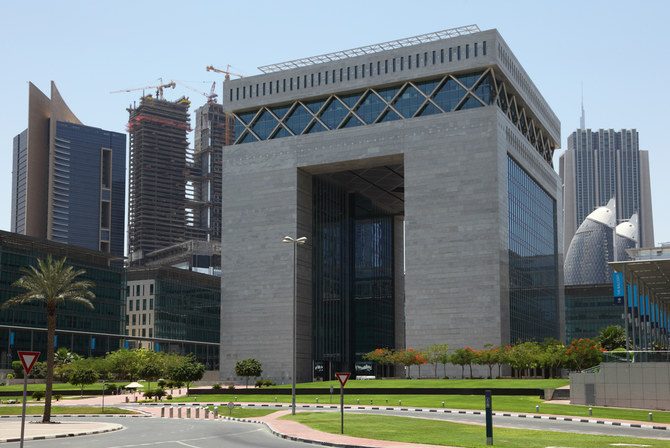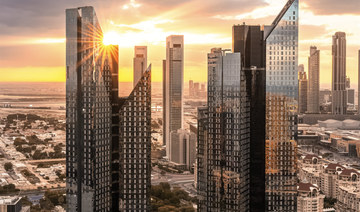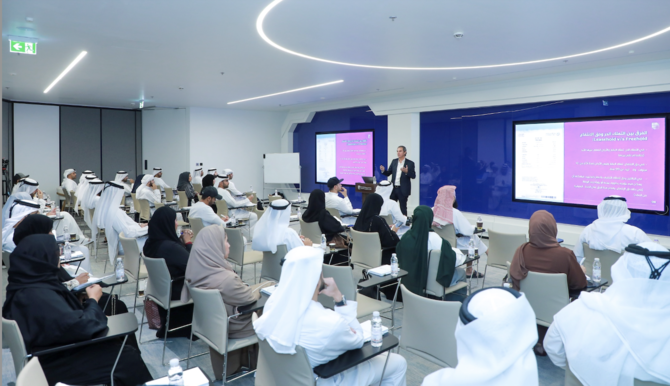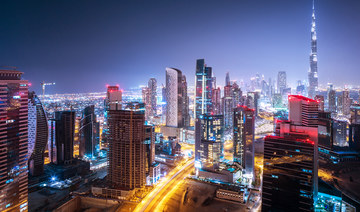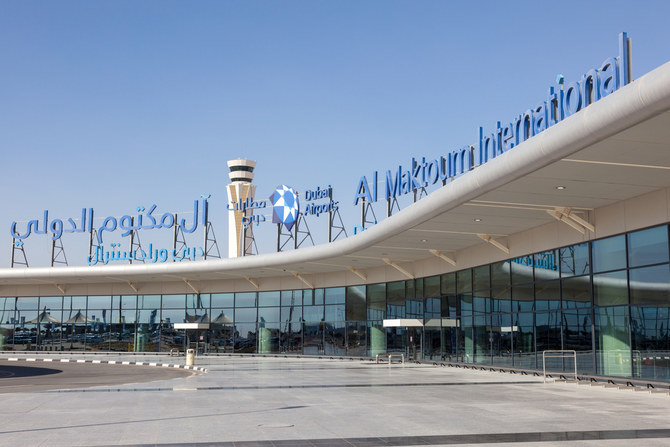Arif Naqvi, the embattled founder of Dubai-based Abraaj Group, will not return to the UAE while there is the threat of imprisonment hanging over him, his lawyer told Arab News.
Naqvi, who had an arrest warrant issued against him by a Sharjah court earlier this week, is believed to be in Britain, where he has residence and owns several properties.
The Sharjah court is due to rule tomorrow on a complaint from the Jafar family, owners of the Crescent Group, that Naqvi wrote a cheque to them for $48.2 million without having sufficient funds to cover that amount — a criminal offense in the UAE.
Habib Al-Mulla, executive chairman of the law firm Baker & McKenzie Habib Al Mulla, who represents Naqvi, said: “Arif will not be at the court tomorrow because there is an arrest order out against him. How can they expect him to attend if he can be put in jail?” he asked.
The $48.2 million cheque was one of several that were written by Naqvi and his long-standing business partner at Abraaj, Muhammed Rafique Lakhani, payable to Hamad Jafar, founder of Crescent.
They were intended as partial security against a loan of $300 million that Naqvi had obtained from Jafar in February, after the first reports of a problem at Abraaj involving the “co-mingling” — using funds for a purpose for which they were not intended — of some $200 million of investors’ cash.
Al-Mulla said that the decision of the Jafar family to present the cheques — prompting the criminal action — was a “negotiating tactic” by the Sharjah-based family to force recovery of the loan.
“When the cheques were written they were made aware there was not the funds to meet them at the time. They were asked for a year or so in order to complete the restructuring of Abraaj.
“We were negotiating with the Jafar family up until a few days ago in good faith, and they presented the cheques. There was no notification of a criminal action, we read about it in the media,” Al-Mulla said.
“At the end of the day, the Jafars will have to negotiate a settlement,” he added.
The Sharjah judge could extend the arrest warrant against Naqvi, while postponing any further action until it has had time to study the details of the case.
Legal experts believe it would be difficult for the UAE authorities to force Naqvi to return to the country while there is the threat of imprisonment against him. “The British take the view that criminal use of bounced cheques is a quirk of the UAE legal system, and is not evidence in itself of fraudulent activity,” a lawyer said. He asked to remain anonymous.
Writing an cheque without sufficient funds is a criminal offense in the UAE, and can mean imprisonment for the issuer, at least until the funds are paid. Al-Mulla has campaigned against the criminalization of bounced cheques as an obstacle to an effective bankruptcy process.
The pressure has grown on Naqvi and Abraaj since the revelation of the $200 million “co-mingling”. A court in the Cayman Islands, where the Abraaj holding company is based, has appointed joint provisional liquidators to restructure it and return money to investors.
Abraaj is also trying to get approval of a deal to sell some of its funds to US investment group Colony Capital in a transaction believed to be worth around $230 million, which would alleviate some of Abraaj’s immediate liquidity problems.
Friends of Naqvi said he has been deeply involved in the restructuring process. “He is working on it 24 hours a day. This thing with the cheques is a very unwelcome distraction. He is in a very lonely place,” said one, who did not want to be named.
Naqvi and the Jafar family were long-standing business partners since Abraaj was founded in 2002, and there is bemusement in Dubai financial circles as to why relations between them have soured recently to the extent that the Sharjah family would seek to have him imprisoned.
There was no response to a request for comment to Badr Jafar, the son of the founder and a long-term Abraaj board member.


